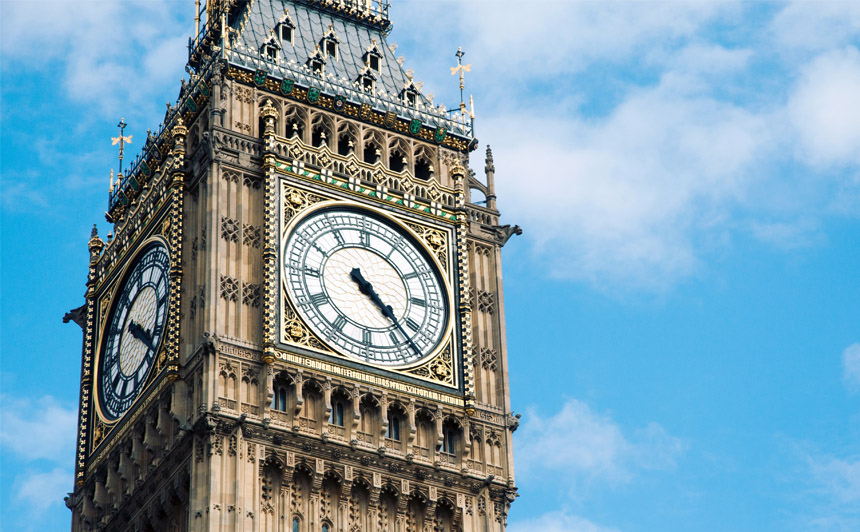Mark Freebairn, Partner and Head of the Board and CFO Practices, recounts the events of Odgers Berndtson’s annual CFO dinner with Lord David Frost
In the age of back-to-back video calls, intermittent Teams connections, and hybrid working, there’s nothing more gratifying than being able to meet friends, colleagues, and old acquaintances in real life. So that’s exactly what we did for The Odgers Berndtson 2021 annual CFO dinner.
True to tradition, Virginia Bottomley, Chair of the Odgers Berndtson Board Practice, welcomed our guests and introduced our speaker: Lord David Frost, Member of the House of Lords and Minister of State at the Cabinet Office. To say Lord Frost is accomplished would be an understatement. He’s acted as Private Secretary to Lord John Kerr, served as HM Ambassador to Denmark, was CEO of the Scotch Whisky Association, is the current CEO of the London Chamber of Commerce and Industry, and is the Chief Negotiator of Task Force Europe.
Given his role in government, it should come as no surprise that his talk covered the Brexit negotiations.
The past two years, he said, “had been something of a blur”. Most of it had been stuck in basements talking to the same people over and over again, while trying to reach almost impossible resolutions. In his words, there were frequent “moments of extreme tension”, with talks running right up until Christmas Eve.
Brexit, he explained, was an opportunity for the UK to look at how it dealt with regulation, how it dealt with governments, and how it achieved growth.
He was rightly concerned with the impact of Brexit on the private sector, which he made clear was not “just a convenient way to keep the public sector running”. It is a sector where people can lead fulfilling lives, learn tremendous amounts, become involved in exciting challenges, and solve complex problems with creativity and innovation. It is, he argued, the job of the government to maintain and help propagate this environment – by supporting trade and funding innovation, and often by simply “getting out of the private sector’s way”.
Leaving the EU plays a part in this. He argued that being in the EU compromised democracy, had given rise to a populist agenda, and was the cause of the constant churn of politicians on the continent. Brexit will enable the UK to operate differently. According to Frost, everything and anything can now change as a result of UK elections. Political debate is coming back to life. There’s renewed interest in political discourse, politicians have the opportunity to put forward their arguments and the best ideas will win the vote. Most importantly, he argued, the UK’s destiny is now in its own hands.
With Brexit comes the need to push forward reforms, the opportunity to drive competition, and create conditions for innovation in the UK. It will, according to Frost, come with a short-term cost which will be outweighed by the opportunity to “make our own decisions”.
In the negotiations themselves, Westminster couldn’t rely on the EU changing its stance on the UK. Instead, the UK would need to take the high road (whenever the EU was ready). Brexit is not about creating boundaries between neighbours – it is not, as Frost put it, “a zero-sum game”. It is instead, a relationship of strategic rivalry, that leads to greater dynamism, greater competition, and greater innovation.
Frost made it clear that for the UK, EU models were no longer working. For national success, “divergence was necessary”. His formula for success would come in the form of low taxes, a light touch on regulation, personal freedom and responsibility, and the opportunity to discuss all ideas with nothing being off the agenda.
In response to a question about dealing with the EU, he explained the difficulties in negotiating with an entity that often had 27 different positions. It has only been by increasing the level of intensity and pressure that the UK has managed to change some of these positions. Trust is an important part of negotiating, and trust has not always been apparent. For example, the EU’s threat to cut off energy to the UK, was not a move that engendered trust. The UK, Frost pointed out, had not made those kinds of threats.
He touched on other difficulties, including Northern Ireland and the decisions the EU had made, which had hindered progress in this area. There was no sense in checking goods crossing into Northern Ireland, which wouldn’t be checked if passing between the EU and the rest of the UK.
His final points, regarding the movement of talent, were perhaps the most import for us as a business. Frost believes that Brexit will give the UK the opportunity to recruit the best and brightest without bias to a specific country or region. He argued that, where previously the UK had accepted lower-skilled workers from the EU, it now had the opportunity to source highly skilled talent from anywhere in the world. He made a similar argument regarding climate change.
Unshackled from the EU, the UK was free to design and innovate in any industry it chose, and it could be more influential in the climate debate by being independent.
Whatever the long-term outcome of Brexit might be, Odgers Berndtson was delighted to host the Cabinet Minister with such critical responsibilities at this time of uncertainty and challenge.
Subscribe to our OBSERVE newsletter to receive our regular global insights:
Error loading Partial View script (file: ~/Views/MacroPartials/CtaBox.cshtml)


